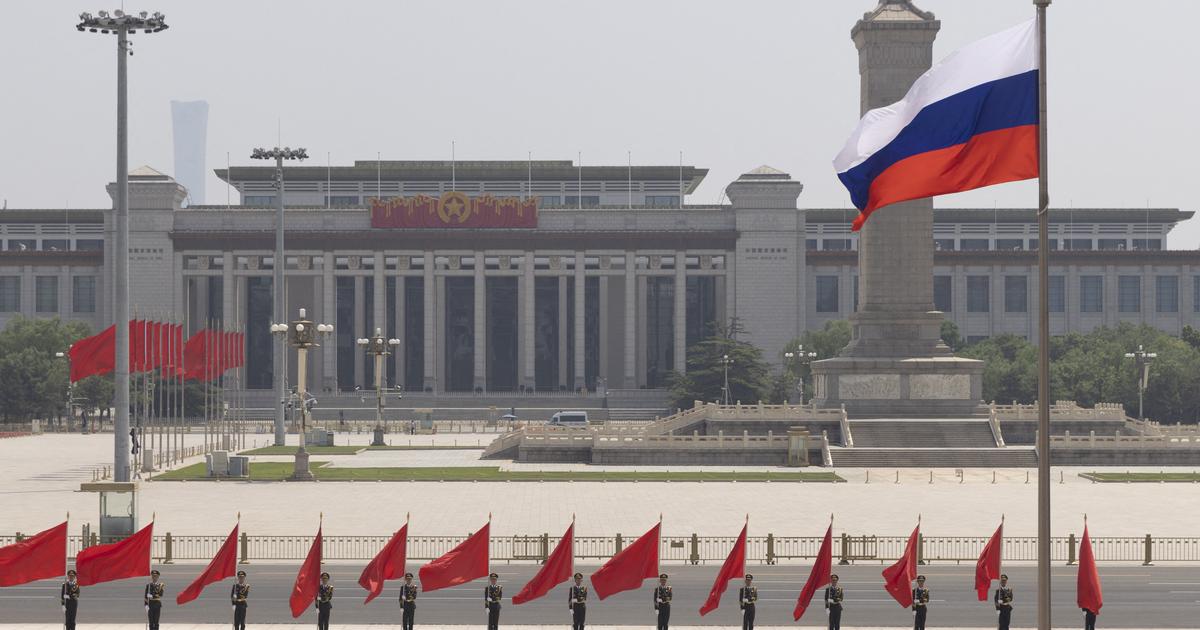01 perspective
Written by: Comment Editor
2020-01-09 16:05
Last updated: 2020-01-09 16:06On Wednesday (8th), the U.S. Congress and the Administrative Commission's China Committee (CECC) published its annual report on human rights in 2019. In addition to mentioning anti-revision movements, some parts of Hong Kong use the "routines" commonly used by the United States to question China's violation of Hong Kong's democratic freedom. In addition, the Central Government has also been named in recent years to launch high-speed rail one-place two inspections, Hong Kong-Zhuhai-Macao Bridge, Greater Bay Area planning and other projects to promote the economic integration of China and Hong Kong. It will eat into Hong Kong ’s high-rule autonomy, and even think that it will make Hong Kong “ Another Chinese city. " On the other hand, Hong Kong government officials are willing to cooperate with the interests of the central government, which have weakened the autonomy granted to Hong Kong by the "one country, two systems" framework.
Regardless of the United States' criticism of the Hong Kong Government, the report fully reflects the short and narrow ideology of the United States. In recent years, the United States has been committed to spreading the thinking of separating China and Hong Kong, interpreting "one country, two systems" and "high degree of autonomy" as "China and Hong Kong do not interfere with each other" according to their needs. The fundamental framework of China and Hong Kong's political framework lies in "one country" and then "two systems". "Harmony" with China is not only a violation of "one country, two systems", but also the path that Hong Kong should take in its development.
Economic integration does not mean losing autonomy
The logic and ideology reflected in the U.S. Congressional Review highlights that the United States is creating a "one country, two systems" interpretation it needs. The United States believes that "economic integration" is equivalent to Hong Kong's high-rule autonomy and is a deliberate link between economic interests and autonomy. Even if the Trump administration and the conservative hawks in the United States respect unilateralism and isolationism, oppose global economic integration, and advocate that the industrial chain should be moved back to the United States to achieve so-called "national security." The idea of such self-isolation in the United States is really embarrassing and even less applicable to China-Hong Kong relations.
Before the reunification in 1997, Hong Kong's economic activities and China had always been closely related, and the economic integration between China and Hong Kong was an inevitable result of Hong Kong's continued development. Moreover, Hong Kong continues to pursue Hong Kong's capitalism and social system, which is the upright "two systems", which has nothing to do with the integration of China and Hong Kong economy, let alone that it will infringe on autonomy. The United States itself is a confederate country. Does the economic integration between states infringe on the state's autonomy?
Of course, Hong Kong must integrate into the overall national development and the Greater Bay Area, complement each other's strengths and develop systematically. (Visual China)
Indeed, for both China and Hong Kong, Hong Kong should have its unique positioning and is definitely not "one Chinese city"; but at the same time, it does not mean that Hong Kong must be separated from China and become an island in China. The discussion of "another Chinese city" will only create panic among Hong Kong people and the world about "one country, two systems" and spread the strange logic of "Hong Kong must be irrelevant to China".
Hong Kong needs to understand its location
However, the CECC report mentioned that the willingness of Hong Kong government officials to cooperate with the central interests is equivalent to weakening the autonomy granted to Hong Kong by the "one country, two systems" framework. It also deserves careful consideration by Hong Kong officials. It is true that the Hong Kong Government should not be blind to the central government, nor is it the "executor" waiting for instructions. Otherwise, this situation is no different from that of the British colonial civil servants, and it also runs counter to the good idea of "Hong Kong people ruling Hong Kong." What they have to do is to interact well with the mainland government. As Hong Kong is part of China, the two should be "buying the same boat" and should not conflict. Moreover, the power of the Basic Law comes from the Chinese Constitution. The two have a constitutional subordinate relationship. Therefore, it is impossible for officials of the Hong Kong Government to oppose the central government everywhere.
Perhaps the United States believes that the combination of Hong Kong's and China's interests may be against it and will try to prevent it, including the recent introduction of the Hong Kong Bill of Rights and Democracy, which will exercise long-arm jurisdiction over Hong Kong. In the face of various attempts by the United States to attack China with the weapon of "one country, two systems" or "high governance autonomy", and take the opportunity to interfere in Hong Kong affairs, the Hong Kong Government must meet with each other. With the launch of the Hong Kong Bill of Rights and Democracy, the Hong Kong government should carefully evaluate its impact and plan for a response once the United States acts. However, in the Legislative Council on Wednesday, Mrs. Ip Lau Suk-yee asked the Deputy Commissioner for Commerce and Economics, Chen Baili, who was responsible for responding to the impact of the Bill of Rights, about the impact of Article 5 on Hong Kong. Immediate response was really doubtful whether the Hong Kong Government took the issue seriously, and it is no wonder that Ye Liu sighed "so disappointed."
Chen Baili, deputy director of the Commerce and Economic Development Bureau, failed to immediately respond to Miss Lau's questions on the Hong Kong Bill of Rights and Democracy because she did not have Article 5. (Profile picture)
Both the Hong Kong Government and the people of Hong Kong must understand Hong Kong's own positioning under the "one country, two systems", not only to handle the constitutional issues of the "one country", but also to grasp the flexibility of the "high autonomy" under the "two systems" to prevent The Dragon Gate of "One Country, Two Systems" is left to others to play with.
One country, two systems tailored to local conditions
[01 Weekly Editorial] The 4th Central Committee re-explains that the “one country, two systems” Hong Kong government will “implement Hong Kong people to govern Hong Kong according to law”
[01 Weekly Editorial] Breaking through the illusion and returning to reality, one country, two systems cannot tolerate "Hong Kong independence"
[01 Weekly Editorial] Rethinking Hong Kong's "One Country, Two Systems" from the 70th Anniversary of National Day Is Still the Way Out
[01 Weekly Editorial] Actively Embraces the Future of One Country, Two Systems in Hong Kong
"Harley-Davidson" refused to enter the Mainland, "one size fits all" does not help China-Hong Kong interaction
Hong Kong and Macau are not the same, emphasis on commonality is not as good as management difference
[Interpretation 4] What to do in 2047? Central gave an answer
01 depth
Fugitive Offenders Regulations Hong Kong Human Rights and Democracy Act One Country Two Systems 01 Viewpoint









